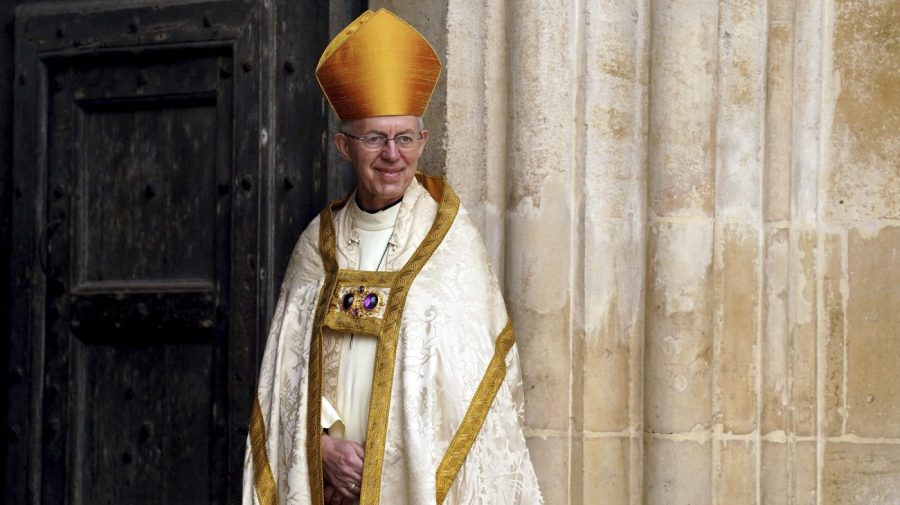
Headlines featuring an archbishop and the cover-up of child sex abuse were once largely the preserve of the Catholic Church, but last month it was the Church of England’s turn. The Archbishop of Canterbury, Justin Welby, yielded to immense pressure from both inside and outside the church and resigned his office.
A review the church’s handling of a serial sexual predator, John Smyth, found that Welby had shown a “distinct lack of curiosity” when informed of the abuse claims in 2013 and had failed to ensure the matter was passed to the police. A decade later, this apparent negligence has brought the archbishop’s career to a sudden end.
It would be easy to regard this as a grim but essentially internal affair for the Anglican Communion, the 85 million-strong worldwide denomination that includes the Episcopal Church in the U.S. and the Anglican Churches of Canada, Mexico, Central and South America. Although the Archbishop of Canterbury has no legal jurisdiction beyond England, he is regarded as first among equals by the other provinces and acts as the spiritual head of the Anglican Communion.
In England, where the archbishop wields real authority, the church is in decline. In 2022, weekly attendance at services was only 654,000, half of what it had been 20 years earlier. On its current trajectory, Anglicanism will be all but extinct in the land of its birth by the 2060s.
But Welby’s departure has a wider resonance. For one, it is an extraordinarily rare event. He was the 105th Archbishop of Canterbury in the succession from St. Augustine in 597 AD, and the first to be forced out of office in more than 300 years — William Sancroft was deprived in 1690 when he refused to swear allegiance to the new monarchs William III and Mary II. Since then, archbishops have died in the post or, as of more recently, retired. Welby would have reached mandatory retirement age in 14 months’ time.
The Church of England is waning in terms of its congregations. It retains a distinct identity, however, because it is the established church (in England, not in Scotland, Wales or Northern Ireland), and the king is its supreme governor. The U.K.’s constitutional arrangements are the antithesis of the separation of church and state. Twenty-six of the most senior bishops sit in the House of Lords by virtue of their office, debating and voting on public legislation. All of England’s prisons are required by law to have an Anglican chaplain, and a quarter of public elementary schools are run by the Church of England.
The king is required by law to swear an oath at the coronation which includes promising to “maintain in the United Kingdom the Protestant Reformed Religion established by law” and “maintain and preserve inviolably the settlement of the Church of England, and the doctrine, worship, discipline, and government thereof, as by law established in England.”
This privileged position in society is not unique, but the only other legislative body in the world to have places reserved for clerics is the Guardian Council of the Islamic Republic of Iran.
There have been campaigns to remove the church’s privileged status since the 19th century. The Church of Ireland was disestablished in 1871, while the Welsh branch of the Church of England lost its official standing in 1920. There was a surge of support for disestablishment from within the Anglican church in the late 1920s, when Parliament refused to authorize changes to the Book of Common Prayer.
Opinion polls suggest that around half the population is content with the status quo. However, the last census in 2021 showed that less than half of the people in England and Wales, 46.2 percent, identified themselves as any kind of Christian; that number had fallen by 13 points in just a decade and was below 50 percent for the first time ever. This historic development prompted renewed debate about the Church of England’s established status, and the toppling of Archbishop Justin may fan the flames of that debate once more.
This is not just about England, but about the role of religion, and of Christianity in particular, in public life. It was the English socialist writer George Orwell who in 1939 first referred to “the Judaeo-Christian scheme of morals,” but he was attaching a label to a sensibility that had underpinned politics in Britain and America for centuries: a broad ethical code derived from religious faith and shared by the majority of people, which therefore sketched out a notion of society.
The U.S. retains a stronger religious inclination. Two-thirds of Americans still consider themselves Christians, though that is falling — for once, Britain may be a harbinger of where America is headed. But it could be that historians will look back from a largely godless society in 50 years’ time and see the fall of the Archbishop of Canterbury as a milestone.
If Christianity is to stem and then turn the tide, time is running out. It may be too late in Britain, but Christians in America must consider how they can revitalize their faith.
Eliot Wilson is a freelance writer on politics and international affairs and the co-founder of Pivot Point Group. He was senior official in the U.K. House of Commons from 2005 to 2016, including serving as a clerk of the Defence Committee and secretary of the U.K. delegation to the NATO Parliamentary Assembly.












